Understanding the Metaverse: A New Frontier for Skill Development
The term Metaverse has become a buzzword, representing an expansive network of persistent, real-time rendered 3D worlds and simulations. It suggests a convergence of physical and virtual realities, where individuals can work, play, and socialize. In this burgeoning digital landscape, the potential for skill development is vast, offering novel approaches to learning and personal growth that were previously unimaginable.
What Is the Metaverse?
The Metaverse is a collective virtual space, created by the convergence of virtually enhanced physical and digital reality. It is a space where users, represented by avatars, can interact with a computer-generated environment and other users. Think of it as the internet brought to life, or at least rendered in 3D. Companies like Facebook, now rebranded to Meta, are leading the charge towards building these interconnected virtual spaces.
Revolutionizing Learning and Training
Simulated Environments for Real-World Skills
One of the essential features of the Metaverse is its ability to simulate complex, real-world environments. This offers a unique opportunity for real-world skill acquisition in a controlled and safe setting. For example, a medical student can practice surgeries in a simulated operating room, or a pilot can hone their skills in a virtual cockpit. These experiences are not only immersive but also provide a scalable way to practice and improve crucial skills without real-world consequences.
Collaborative Learning in a Virtual Space
Collaboration is key in the Metaverse, whereby learners can interact and engage with peers and instructors from around the globe. This fosters a level of interaction and teamwork unparalleled by traditional online learning platforms. The Metaverse allows for dynamic group activities, workshops, and real-time feedback, creating a rich learning environment that encourages active participation.
Networking and Professional Opportunities
In the Metaverse, networking takes on a new dimension. Professionals can connect and collaborate with others in their field, regardless of geographical barriers. This opens up a plethora of opportunities for mentorship, partnership, and innovation. These interactions are not limited to avatars and text chat; the Metaverse supports voice and video communication, creating a more genuine and engaging experience.
Challenges and Considerations
Accessibility and Inclusivity
While the Metaverse presents numerous opportunities for skill development, challenges regarding accessibility and inclusivity remain. Ensuring that these virtual spaces are available to all, regardless of socioeconomic status or disability, is crucial. Developers and educators are called to create inclusive experiences that cater to diverse needs, providing equal access to learning opportunities.
Privacy and Security
As with any online platform, privacy and security are paramount in the Metaverse. Protecting users’ data and ensuring a safe environment for learning and interaction is vital. The Metaverse is still in its nascent stages, and as it evolves, ongoing dialogue about ethical standards, privacy policies, and security measures will be essential.
How the Metaverse Enhances Learning and Training Experiences
The concept of the metaverse, a collective virtual shared space, is rapidly transforming the landscape of learning and training. Through its immersive environments, the metaverse offers a vast potential to enhance educational experiences in ways that traditional methods cannot. This new digital frontier introduces an innovative approach to learning by leveraging the power of virtual reality (VR), augmented reality (AR), and mixed reality (MR).
Immersive Learning Environments
In the metaverse, learners can dive into fully-realized, three-dimensional worlds that stimulate both the mind and the senses. These environments promote active learning by naturally engaging learners through interaction and exploration. For example, medical students can practice surgeries in a risk-free virtual space, or history buffs can journey through accurately recreated historical periods. By embodying avatars, students can participate in lifelike scenarios, which allows for deeper understanding and retention of information. The metaverse’s capability to mimic real-life situations helps learners develop practical skills and confidence before transferring those abilities to the actual world.
Collaboration Without Borders
One of the most significant advantages of the metaverse is its ability to connect people from all over the globe. Learners and trainers can coexist in the same virtual space regardless of their physical location. This erases geographical barriers, opening up opportunities for international teamwork and cultural exchange. Educators can conduct global classrooms where students can collaborate on projects, participate in group discussions, or share diverse perspectives. Such interactions not only broaden the educational experience but also prepare learners for the increasingly globalized workforce.
Customized and Adaptive Learning
The metaverse offers personalized learning experiences that adapt to individual needs. It can tailor content to match the learner’s pace and learning style, leading to a more effective and engaging educational process. With AI integration, the system can assess a learner’s performance in real-time, offering resources and assistance as necessary. This adaptive learning approach ensures that no learner is left behind, as they receive support precisely when needed. As a result, each student can achieve their full potential in a supportive and dynamic virtual learning environment.
As we continue to explore the capabilities of the metaverse, learning and training experiences become more dynamic, accessible, and personalized, making education an exciting adventure rather than a tedious task. The potential of the metaverse to revolutionize learning is immense, and we are just scratching the surface of what is possible within these virtual worlds.
Metaverse for Skill Development: What the Future Holds
The Evolution of Learning Environments in the Metaverse
The concept of the metaverse has opened up unprecedented avenues in the realm of education and skill acquisition.
Traditional learning environments are being transformed, as the metaverse provides a dynamic, interactive space
that mirrors real-world experiences. Imagine learning a new language by immersing yourself in a virtual city where
the target language is natively spoken, or practicing surgical procedures in a risk-free, life-like digital operating room.
The metaverse blurs the lines between physical and digital learning spaces, supporting learners in skill development
through immersive simulation and real-time interaction with both AI-based instructors and human counterparts globally.
This evolution in how we learn to promises to democratize education, making high-quality skill-building experiences
accessible to a broader audience.
Enhancing Soft Skills Through Virtual Interaction
Beyond just hard skills training, the metaverse shows tremendous potential in nurturing soft skills – critical in the modern workplace.
With the advent of virtual collaboration spaces, participants can work on communication, teamwork, and problem-solving skills within
the confines of a controlled environment that closely mirrors real-life scenarios. Users can take on various roles, work in diverse teams, and
handle challenging situations, all of which contribute to soft skill development. Such simulated experiences in the metaverse provide a safe
space for experimentation, immediate feedback, and the ability to practice repeatedly without real-world repercussions.
Breaking Barriers with Accessible Skill Development
One of the prime advantages of skill development within the metaverse is the dismantling of physical and socioeconomic barriers.
Remote learning through virtual platforms allows students and professionals from all over the world to gain access to experts, resources,
and experiences that might otherwise be outof reach. Furthermore, the metaverse levels the playing field for those with disabilities,
offering customizable learning experiences that cater to a wide range of needs. With the metaverse, the future of learning is inclusive,
allowing everyone to develop the skills necessary to thrive in an increasingly complex global economy.
Preparing for Tomorrow’s Job Market with the Metaverse
Finally, as we look to the future, the metaverse has a critical role to play in equipping individuals for the jobs of tomorrow.
Many of these jobs do not even exist today but will require a solid foundation in digital literacy and a comfort with evolving technologies.
The metaverse introduces users to forward-thinking concepts and allows them to experiment with cutting-edge tools in a virtual setting.
Employers, likewise, can benefit from using the metaverse to train employees, keeping their workforces nimble and ready to adapt to new
trends and technologies. As the digital landscape continues to evolve, the metaverse for skill development stands as a beacon for innovation,
practical learning, and professional growth.
Real-World Case Studies: Successful Skill Acquisition in the Metaverse
In the emerging digital landscape, the Metaverse has proven to be a revolutionary platform for immersive learning and skill acquisition. We’re going to delve into several real-world case studies that showcase how varied industries are leveraging this virtual space for enhancing abilities and professional growth. Focusing on practical implementations, these examples demonstrate the efficiency and creativity with which skills can be acquired within the Metaverse.
Medical Training Enhanced Through Virtual Reality
In the medical field, precision is paramount. The Metaverse now enables aspiring surgeons to perform virtual operations without risks to actual patients. A notable case is that of a university hospital in Tokyo, which created a program allowing surgical students to practice intricate procedures in a controlled Metaverse environment. Achievements within this program include:
- Increased hand-eye coordination and precision in surgical tasks
- Improved understanding of human anatomy through 3D visualization
- Enhanced decision-making skills during high-pressure scenarios
These students found that the skills learned virtually are highly transferable to the operating room, resulting in better outcomes and increased confidence in their real-world capabilities.
Piloting Proficiency Through Flight Simulation
Aviation training has been transformed with the help of Metaverse technologies. Flight simulators, long used in pilot training, have expanded into fully immersive experiences. One case study highlights an aviation academy that integrates virtual reality (VR) headsets and realistic flight controls to simulate all aspects of flying. Trainees have gained:
- Comprehensive flight control familiarity before setting foot in an actual cockpit
- Understanding of spatial awareness and navigation in multiple weather conditions
- Experience in emergency response, vital for real-life flight safety
Here, the Metaverse acts as a safe yet effective bridge between theory and practice, with pilots graduating from the program prepared for the multitude of scenarios they might encounter in the air.
Immersive Language Learning with Global Interaction
Language acquisition presents its own set of challenges, with immersion often cited as a critical factor for fluency. The Metaverse removes geographical barriers, allowing learners to engage in a virtual environment where communication in a foreign language is necessary. An example can be seen in a platform that connects users from around the world to practice languages live within diverse VR scenarios. This platform reports significant improvements in learners’ abilities, citing:
- Quicker adoption of conversational language skills through real-time dialogue
- Better pronunciation and listening skills via interaction with native speakers
- Development of cultural understanding by participating in virtual social situations
Language learners indicate that these virtual social interactions build confidence and linguistic competence more effectively compared to traditional classroom settings.
The case studies discussed reflect a promising future for skill acquisition in the Metaverse. By providing immersive, interactive, and risk-free environments, the Metaverse is redefining the boundaries of learning and opening up a world of possibilities for learners across the globe. As we advance, it’s clear that the methodologies for skill development will continue to innovate, and the virtual realm will play a significant role in shaping professional training and education.
Getting Started in the Metaverse: Tools and Tips for Skill Growth
Understanding the Metaverse Fundamentals
Welcome to the alluring world of the metaverse, where the borders between reality and digital existence are increasingly blurred! To navigate this new realm, a grasp of its fundamentals is crucial. The metaverse is an expansive network of 3D virtual worlds, where you can socialize, work, play, and learn. Dive in by exploring popular platforms such as Second Life, Decentraland, and VRChat—each offers a unique gateway into virtual spaces that are continuously evolving.
Choosing the Right Virtual Platform
Beyond entertainment, these platforms can be leveraged for professional development and networking. It’s suggested to start with a platform that resonates with your interests. Gamers may prefer the immersive experiences of Fortnite’s Creative Mode, while professionals could benefit from the business-oriented environments in platforms like Microsoft’s Mesh.
Create Your Digital Persona
Begin your journey by crafting a digital persona. A compelling avatar representation not only improves interactions with others but also allows for personal expression. You can go as simple or as elaborate as you wish. Consider avatar customization tools within the metaverse platforms to make your persona stand out!
Acquiring Essential Metaverse Skills
With your fundamentals in place, it’s time to discuss skill acquisition. The metaverse values a wide range of competencies from technical know-how to soft skills such as communication and collaboration. Taking online courses or workshops focused on virtual reality (VR) and augmented reality (AR) can be a massive boost. Topics like 3D modeling, coding for VR environments, and understanding spatial computing are also vital. Websites like Udemy and Coursera are rich resources for such educational content.
Connect with the Community
Engaging with the metaverse community is equally important. Join online forums, attend virtual events, and participate in discussions to gain insight and build relationships. Engaging with a community can accelerate learning and provide opportunities to collaborate on projects or find mentors.
Practice Makes Perfect
Hands-on practice is priceless. Experiment with creating your virtual spaces, customizing environments, or hosting events. Many platforms offer sandbox environments where you can hone your skills without risk.
Staying Ahead of the Curve
To truly flourish in the metaverse, you should be perpetually learning. The field is fast-paced, with new technologies emerging regularly. Keep yourself informed by following industry leaders on social media, subscribing to relevant blogs, and attending webinars and conferences. Stay curious, stay learning, and the metaverse will usher in a plethora of opportunities for personal and professional growth.
Adapting to New Technologies
As you progress, be open to adopting new tools and software that enhance your metaverse experience. Augmented reality glasses and haptic feedback devices are becoming more accessible and can add new dimensions to your interactions within the virtual world.
Fostering a Growth Mindset
Lastly, nurture a growth mindset. The willingness to learn from mistakes and view challenges as opportunities to grow is key in the ever-changing landscape of the metaverse. Your curiosity and resilience will likely be your greatest asset as you navigate and grow within this novel ecosystem.
By embracing these tools and tips, you’re well on your way to becoming a skilled denizen of the metaverse. Forge ahead, and let your virtual voyage be nothing short of extraordinary!

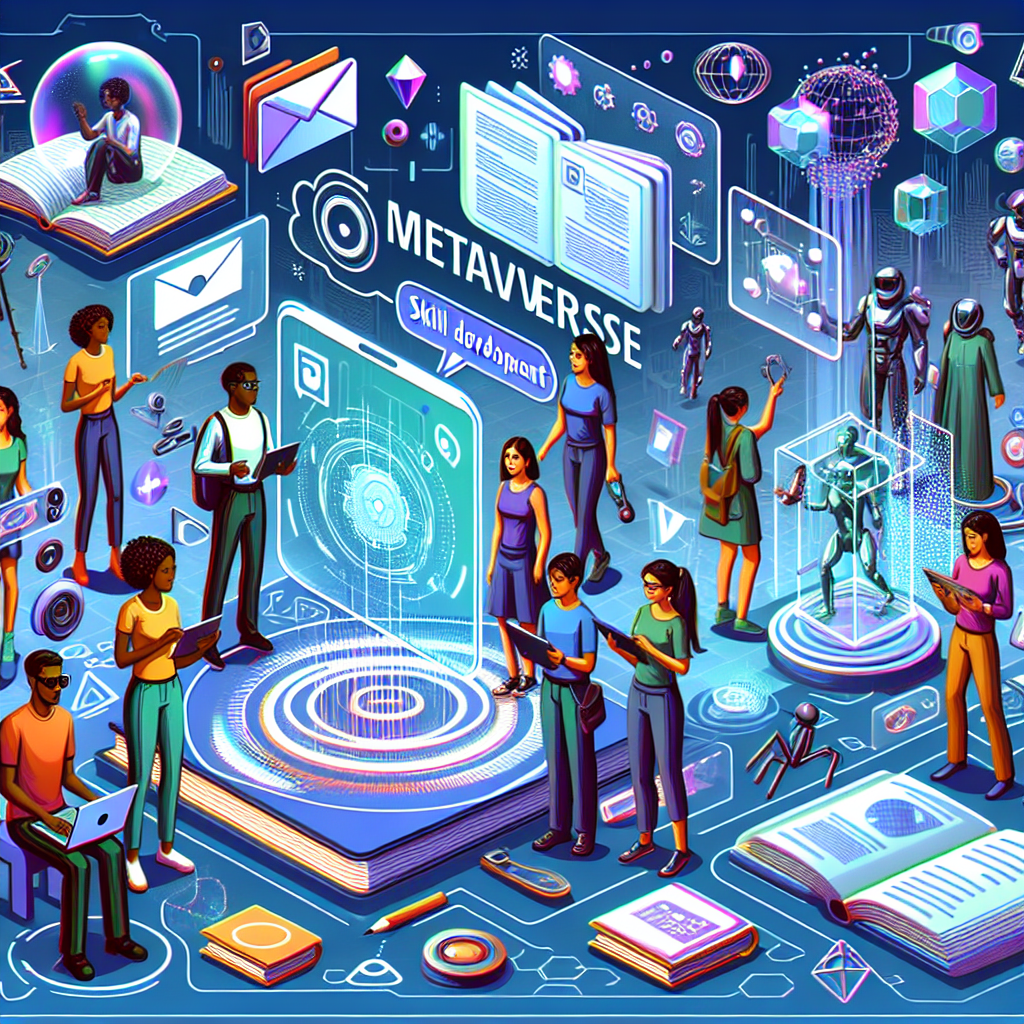
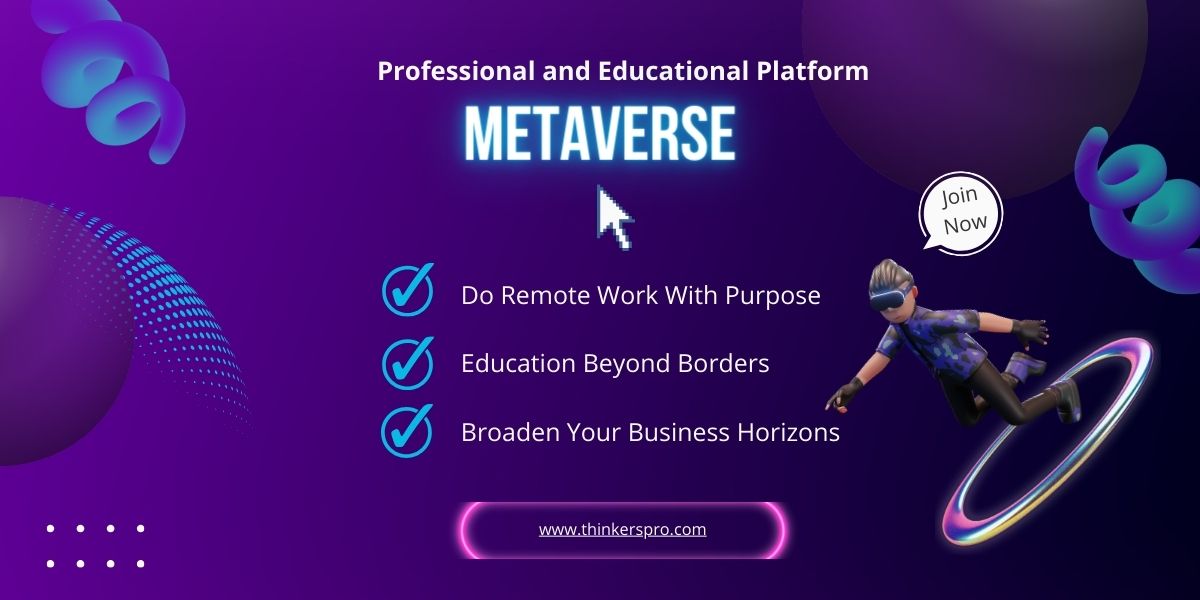
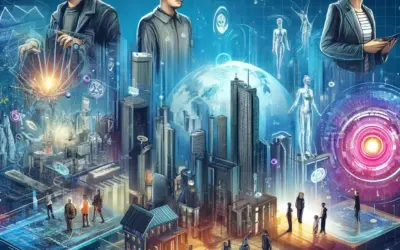
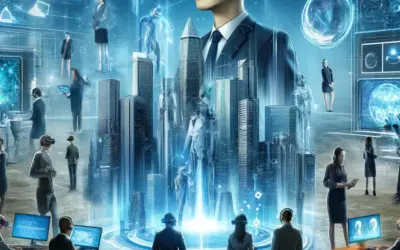
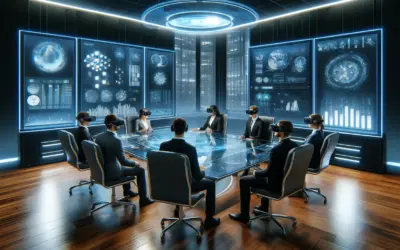
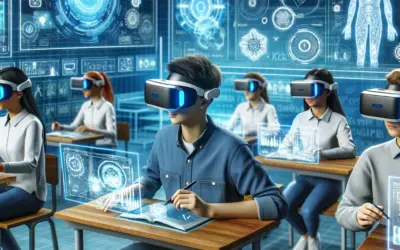
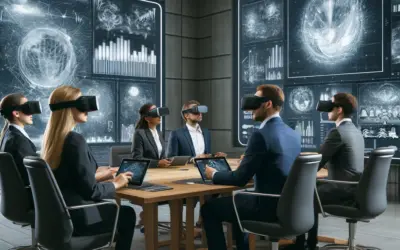
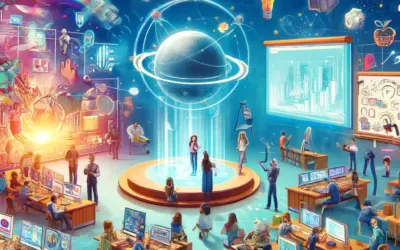
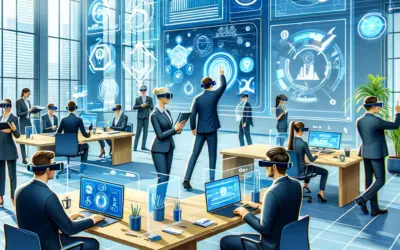

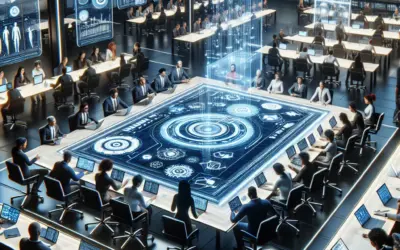
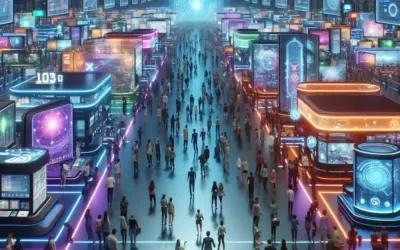
0 comentarios